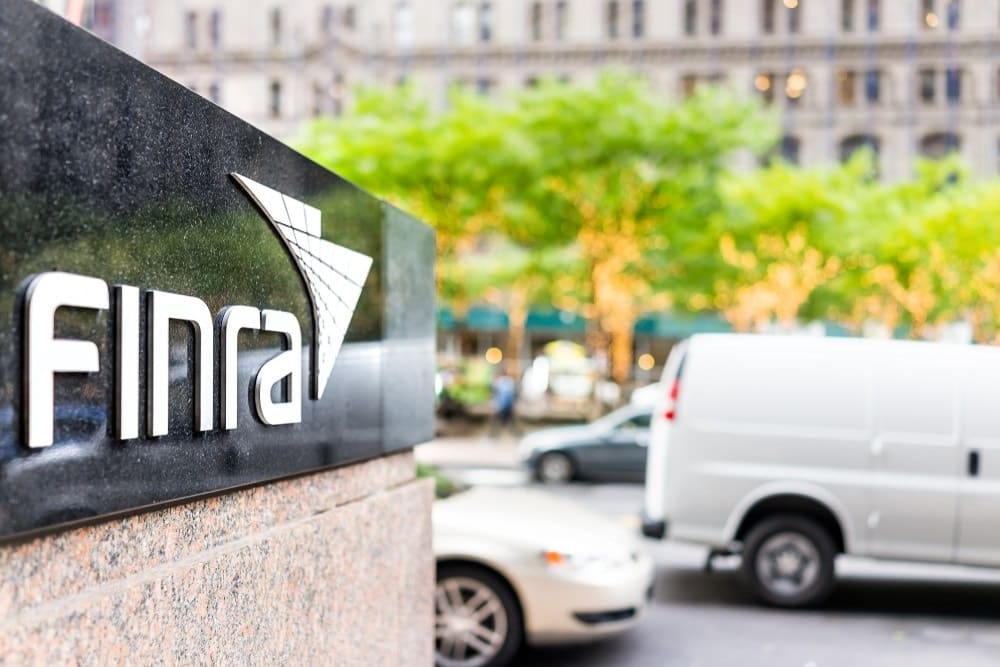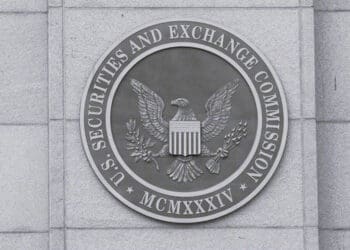Each year, the Financial Industry Regulatory Authority (FINRA) shares its regulatory and examination priorities for the coming year, highlighting both new and continuing areas of focus. In this post, experts from Venable LLP provide an overview of the most significant areas addressed in the 2018 letter.
With co-authors D. E. (Ed) Wilson Jr., Andrew E. Bigart and Charles B. Alvis
In January, FINRA released its annual Regulatory and Examinations Priorities Letter. As with prior editions, the letter explains the areas of risk and concern that will guide FINRA’s examination and regulatory programs for the coming year. The letter gives firms notice of upcoming and ongoing FINRA initiatives and helps firms evaluate how to strengthen their compliance, supervision and risk management internal controls. FINRA President and CEO, Robert Cook, framed FINRA’s mission for 2018 as follows: to protect investors and promote market integrity in a manner that facilitates vibrant capital markets. In 2018, FINRA’s priorities will include a focus on six specific areas:
- Fraud;
- High-risk Firms and Brokers;
- Operational and Financial Risks;
- Sales Practice Risks;
- Market Integrity; and
- New Rules.
From an examination perspective, CEO Cook reiterates that FINRA will continue to prioritize the implementation of a risk-based framework better aligning FINRA resources with member firms’ risk profiles.
In this alert, we provide an overview of some of the most significant issues addressed in FINRA’s letter. FINRA is likely to identify additional areas of concern throughout 2018 as it continually assesses the market. Firms should keep apprised of developments through regular review of FINRA’s website and update their practices as needed to address changes in regulatory risk.
For a complete listing of FINRA’s priorities, see the full letter here. Please visit the Venable website for summaries of the 2017, 2016 and 2015 letters.
1. Fraud
The first priority FINRA identified is fraud. FINRA will continue to investigate insider trading, microcap pump-and-dump schemes, issuer fraud and Ponzi-type schemes, and refer appropriate cases to the SEC. FINRA will give special attention to microcap fraud schemes, particularly those that target senior investors. FINRA advises firms to monitor brokers’ activity in microcap stocks and to evaluate internal policies and training to ensure brokers do not engage in impermissible communications or interactions with microcap stock promoters. Interestingly, in this context, FINRA also reminded firms of their obligation to file Suspicious Activity Reports (SAR) related to the exploitation of senior investors.
2. High-risk firms and brokers
As in 2017, identifying and monitoring high-risk firms and brokers, and mitigating the risk they present to investors generally and specifically to senior investors, continues to be a top priority for FINRA. In particular, FINRA will devote attention to firms’ hiring and supervisory practices and branch inspection programs. Specific areas of concern include risks to unsophisticated or senior investors, registered persons conducting private securities transactions with funds raised from investors they serve and registered persons conducting outside business activities.
3. Operational and financial risks
FINRA combined the categories of operational and financial risks to match several longstanding priorities with new ones:
- Business continuity planning: Recognizing the need to prepare for contingencies in which firms may lack physical access to locations for an extended period, FINRA will review firms’ business continuity plans for an emergency or business disruption. The review will focus on how firms implement their business continuity plans. FINRA will also review firms’ plans for restoring systems, procedures and records to normal business operations after a disruptive event.
- Customer protection and verification of assets and liabilities: FINRA will evaluate whether firms have implemented adequate controls and supervision to protect customer assets. Specifically, FINRA will examine firms’ net capital and reserve computations under Securities Exchange Act of 1934 (SEA) Rules 15c3-1 and 15c3-3 for accu FINRA will also look for documentation demonstrating that securities are held free of liens and encumbrances, especially for securities held at foreign custodians.
- Technology governance: FINRA will examine firms’ information and technology change management policies and procedures. The priorities letter explains the significance of this issue, as breakdowns in technology and operations can lead to inaccurate data or outages that adversely affect customers, the firm and the market.
- Cybersecurity: FINRA will evaluate how effectively cybersecurity programs protect sensitive information from both external and internal threats. This will include review of firms’ preparedness, technical defenses and resiliency measures. In particular, FINRA reminds firms that their policies and procedures should address whether to file a SAR upon identifying a cybersecurity event.
- Anti-money laundering: FINRA continues to focus on the adequacy of firms’ AML programs. FINRA has specific concerns about policies and procedures for suspicious activity monitoring and reporting, resources for AML monitoring and independent testing required under FINRA Rule 3310(c). Additionally, FINRA is concerned about the use of firms’ foreign affiliates to conduct high-risk transactions and the instances that it has observed in which firms did not subject their foreign affiliates to the same level of monitoring as their domestic accounts. Finally, FINRA advises that AML surveillance programs should cover securities-backed lines of credit (SBLOCs) and should aggregate across accounts when multiple accounts are used to move funds related to an SBLOC.
- Liquidity risk: FINRA continues its focus on liquidity planning. FINRA will evaluate whether a firm’s liquidity plan adequately accounts for its business and customers and whether a given plan includes scenarios consistent with the firm’s collateral resources and client FINRA will also review the adequacy of firms’ stress testing assumptions.
- Short sales: FINRA will review firms’ policies and procedures for establishing and monitoring the rates that customers are charged for short sales. Specifically, FINRA has identified cases of loaning securities though conduit accounts at marked up rates and plans to review the calculation of such rates for compliance with firms’ procedures.
4. Sales practice risks
As in 2017, FINRA will again focus on the broad category of sales practices to demonstrate its commitment to investor protection. In particular, FINRA will focus on the following areas:
- Suitability: FINRA will continue to assess the adequacy of the controls that firms employ to meet suitability obligations. FINRA will review how firms decide which products to subject to new product vetting, as well as the vetting process itself and the supervisory systems and controls that educate firm personnel about products. FINRA advises firms to identify product risks and include such risks in product training to ensure that the risks can be appropriately evaluated before a registered representative recommends a product to a customer. FINRA will review products for which firms have struggled to implement effective controls or that are complex or high risk. Additionally, FINRA will review recommendations made within employer-sponsored retirement plans and the supervisory mechanisms related to these recommendations. Finally, FINRA will review situations in which a registered representative recommends switching from a brokerage account to an investment adviser account that results in a clear disadvantage to the customer.
- Initial coin offerings and cryptocurrencies: FINRA will closely monitor the developments in this rapidly changing area and will examine the roles that firms may serve in ICOs and other cryptocurrency transactions. When such transactions involve securities or the offer and sale thereof, FINRA may review firms’ supervisory, compliance and operational mechanisms to ensure compliance with federal securities laws and FINRA For other articles related to ICOs and cryptocurrencies, please see prior issues of our Fund Forum.
- Use of margin: FINRA will examine firms’ practices related to margin loans to ensure firms adequately disclose risk and maintain supervisory controls reasonably designed to prevent excessive margin trading.
- Securities-backed lines of credit: Responding to the recent increase in the use of SBLOCs, FINRA will review firms’ compliance with the relevant sales practice and operational obligations. Specifically, FINRA will assess whether firms adequately disclose the risks associated with Additionally, FINRA reminds firms that when an SBLOC lender is affiliated with a firm or other third party, the firm must have controls in place to earmark the collateral securing the SBLOC and ensure that SBLOC collateral is not dually pledged for other extensions of credit.
5. Market integrity
Market Integrity remains an important area of focus for FINRA, with the following measures identified in the priority letter:
- Manipulation: As in prior years, detecting and deterring manipulation remains a critical priority for FINRA. Firms can expect enhancements and expansion in FINRA’s surveillance programs to address new challenges and developments in 2018 and should be prepared for FINRA to review firm programs in these areas. The letter provides the following examples of updates that FINRA made to the surveillance program last year:
- The introduction of the Cross Market Auction Ramping surveillance pattern to identify aggressive and dominant trading surrounding the open and close.
- The revision of the Cross Market Marking the Open and Close surveillance pattern to reduce false positives and more accurately identify possible instances of marking the open and close.
- The enhancement of the Cross Market Layering surveillance pattern to detect collusion among multiple marked participants engaged in layering.
- Best execution: FINRA is expanding its equity best execution surveillance program to assess potential price improvements firms may provide when routing customer orders for execution or executing internalized customer orders. With the expanded surveillance, FINRA will systematically review both the frequency of price improvement and the relative amount of price improvement compared to other routing or execution venues. Additionally, in late 2017, FINRA began an examination sweep focusing on how best execution obligations are managed when broker-dealers receive order-routing inducements that present a conflict of interest with the duty of best execution. Finally, FINRA will expand its surveillance program to review execution quality and fair pricing in fixed income securities. Firms should expect a review of transactions in Treasury securities under the expanded program.
- Regulation SHO: FINRA will assess firms’ policies and procedures for compliance with Rule 201 of Regulation SHO. Specifically, FINRA expects firms to have supervisory systems in place to test and review compliance controls when firms’ Rule 201 policies include automated, rules-based controls. When Rule 201 exemptions are claimed, FINRA expects firms to ensure that the transaction qualifies for the Firms that execute short sales under a Rule 201 exemption must mark the order and report the trade as short exempt.
- Fixed-income data integrity: FINRA’s data integrity surveillance program monitors firms’ reporting of transactions in Treasury securities to the Trade Reporting and Compliance Engine (TRACE) for instances of late reporting, unreported or misreported inter-dealer trades and inaccurate execution time reporting. FINRA will review TRACE-eligible securities for complete, timely and accurate reporting and will focus on discrepancies in the transaction data contained in electronic communications to customers compared to firms’ TRACE reports.
- Options: In 2018, FINRA remains focused on the surveillance pattern it unveiled last year to detect potential front-running in correlated options products. Another area of focus for options will be “marking the close” FINRA has observed that in some firms, supervisory systems related to this activity are either deficient or do not exist. In addition, FINRA will continue its review of potential options-related violations of SEA Rule 14e-4.
- Market access: Reasonable pre-trade financial controls are one obligation under the Market Access Rule, and FINRA will continue to review broker-dealers’ compliance. In particular, FINRA has observed instances in which broker-dealers did not maintain reasonable documentation to support financial thresholds or did not periodically review the reasonableness of those limits.
- Alternative trading system surveillance: FINRA will review the supervisory systems maintained for alternative trading systems in the context or reviews based on surveillance alerts indicating potential manipulative activity occurring on or through the alternative trading system.
- Report cards: FINRA plans to launch several new report cards in 2018 to assist firms with compliance, including:
- The Auto Execution Manipulation Report Card will help firms identify when market participants use non-bona fide orders to move the national best bid or offer (NBBO).
- The Alternative Trading System Cross Manipulation Report Card will identify when market participants engage in potential manipulation of the NBBO.
- The Fixed Income Mark-up Report Card will provide information that firms can display based on criteria such as investment rating, product and length of time to maturity.
6. New rules
Several significant new rules that have already or will become effective in 2018 include the following:
- Financial Exploitation of Specified Audits (FINRA Rule 2165): Effective February 5, 2018, this rule permits temporary holds on customer accounts based on reasonable belief of financial exploitation.
- Customer Account Information (Amendment to FINRA Rule 4512): Effective February 5, 2018, this amendment requires reasonable efforts to obtain the name of and contact information for a trusted contact person for a non-institutional customer’s account.
- FinCEN Customer Due Diligence Rule (CCD Rule): Firms must comply with this rule by May 11, 2018. The rule strengthens customer due diligence for covered financial institutions by addressing customer identification and verification, beneficial ownership identification and verification, the nature and purpose of customer relationships and monitoring for suspicious transactions.
- Customer Confirmations (Amendment to FINRA Rule 2232): Effective May 14, 2018, this amendment requires disclosing the amount of mark-up or mark-down applied to trades in corporate or agency debt securities with retail customers when the member executes offsetting principal trades in the same security on the same Under the rule, members must also provide customers a reference or hyperlink to publicly available trading data for the specific security and state the execution time of the transaction expressed to the second.
- Margin Requirements for Covered Agency Transactions (Amendment to FINRA Rule 4210): Effective June 25, 2018, this amendment establishes new margin requirements for the following transactions:
- To Be Announced (TBA) transactions, including adjustable rate mortgages;
- Specified Pool Transactions; and
- Transactions in Collateralized Mortgage Obligations (CMOs), issued in conformity with an agency or government-sponsored enterprise program, with forward settlement dates.
- Consolidated FINRA Registration Rules (FINRA Rules 1210-1240): Effective October 1, 2018, these rules will streamline and make uniform and consistent the qualification and registration requirements. The new rules restructure the representative-level examination process to eliminate duplicative testing as well as several registration categories that are outdated or have limited utility.
Conclusion
FINRA’s 2018 priorities reflect its core focus on investor protection and market integrity. These priorities include a focus on transparent sales practices, enhanced disclosures and curtailing abusive market activities. In addition, FINRA will continue to address new market challenges by focusing on cybersecurity, cryptocurrencies and data integrity.
FINRA will continue to provide additional guidance throughout the year on these and other topics, and we can expect the implementation of several operational changes over the year, including the consolidation of FINRA’s enforcement functions into a single unit and the announcement of changes to FINRA’s advisory committees. In particular, firms should be mindful of the new rules becoming effective in 2018 and adjust their compliance programs accordingly. Finally, firms should monitor FINRA’s website (www.finra.org), conferences, Regulatory Notices, alerts and Weekly Update emails for timely information and guidance.



 Michael Manley is a partner at Venable and previously served as general counsel, Chief Compliance Officer and Secretary for CĪON Investment Management, LLC, a registered investment adviser and CĪON Investment Corporation, an externally managed, non-traded, business development company.
Mr. Manley was responsible for developing and implementing comprehensive compliance programs, including establishing corporate charters, corporate governance policies and various policies and procedures regarding code of ethics, insider trading, custody and SEC disclosure. He also negotiated agreements with swap counterparties, custodians, consultants, insurers and other fund providers. Additionally, Mr. Manley served as general counsel, chief compliance officer and secretary for both CĪON entities.
Mr. Manley previously worked at investment adviser Plainfield Asset Management and, as co-general counsel and chief compliance officer, managed the day-to-day legal and compliance affairs for Plainfield Direct, a business development company managed by Plainfield Asset Management.
Michael Manley is a partner at Venable and previously served as general counsel, Chief Compliance Officer and Secretary for CĪON Investment Management, LLC, a registered investment adviser and CĪON Investment Corporation, an externally managed, non-traded, business development company.
Mr. Manley was responsible for developing and implementing comprehensive compliance programs, including establishing corporate charters, corporate governance policies and various policies and procedures regarding code of ethics, insider trading, custody and SEC disclosure. He also negotiated agreements with swap counterparties, custodians, consultants, insurers and other fund providers. Additionally, Mr. Manley served as general counsel, chief compliance officer and secretary for both CĪON entities.
Mr. Manley previously worked at investment adviser Plainfield Asset Management and, as co-general counsel and chief compliance officer, managed the day-to-day legal and compliance affairs for Plainfield Direct, a business development company managed by Plainfield Asset Management.







